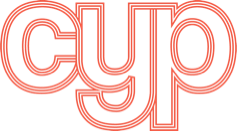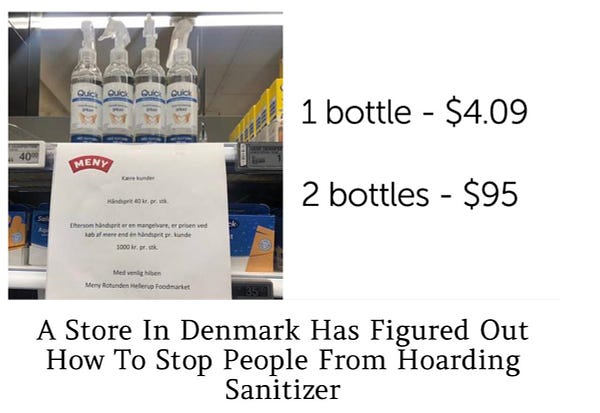 |
Hi, I’m Sari Azout and this is the the 39th edition of Check your Pulse, a tech and startups newsletter designed to make you feel human. I try to make this one of the best emails you get each week. If you’re enjoying it and know someone who’d like this sort of thing in their inbox, they can sign up here.
Happy Sunday, friends.
I’m taken aback by the support of the Classifieds Ad initiative I announced last week. Please scroll to the bottom of this email to support these amazing brands. As a reminder, I’m donating 100% of Classified Ad Revenue directly to vulnerable families affected by the pandemic.
It’s ok to love Quarantine Internet and also be terrified about the world right now. Two things can be true at once. This situation brings out the best in us — the guy who left a 10k tip at a restaurant, the people assembling handwashing stations for the homeless, the Twitter giftgiving bandwagon, and the fact that we’re all learning how to make bread (I’m into this design-forward, Covid good news Instagram account).
But it also reveals how fragile our economic and social systems are. Wealth inequality in the world is the highest it has ever been, and the virus brings the rumblings of inequality to a boiling point: the “essential jobs” are the worst paid ones.
David Graeber wrote a few years ago:
“In our society, there seems a general rule that, the more obviously one’s work benefits other people, the less one is likely to be paid for it. Again, an objective measure is hard to find, but one easy way to get a sense is to ask: what would happen were this entire class of people to simply disappear? Say what you like about nurses, garbage collectors, or mechanics, it’s obvious that were they to vanish in a puff of smoke, the results would be immediate and catastrophic. A world without teachers or dock-workers would soon be in trouble, and even one without science fiction writers or ska musicians would clearly be a lesser place. It’s not entirely clear how humanity would suffer were all private equity CEOs, lobbyists, PR researchers, actuaries, telemarketers, bailiffs or legal consultants to similarly vanish. (Many suspect it might markedly improve.)”
So what will stay with us, psychologically and culturally, after this is over?
My guess is we become more communal, not less.
Morgan Housel writes: When people feel the correlation between their decisions and their outcomes is high, there’s less desire for a strong social safety net. But when something impacts everyone at once, and can ruin the careful as much as the reckless, there’s a history of people coming together to support a public backstop.
At a time when gig work is under siege by regulators around the world, and Instacart shoppers are on massive strike, it’s a good time to reflect on our intertwined fates. The package I order from the service that denies sick leave to its workers makes me more vulnerable to illness, and so does the neighbor who refuses to stay home because our public school system didn’t do a good job of teaching him science.
Instacart needs flexibility in order to work. But what if there was a model that gave companies flexibility and also democratized ownership?
The largest private company in the world, Cargill, has 150k employees and less than 500 shareholders.
Millennials and Gen Z already believe in putting social and civic value first, and we are already seeing new initiatives emerge on the fringes - from the start.coop accelerator to this beautiful manifesto on society-centered design (highly recommend reading it).
But what does society-centered design look like in practice?
I was personally thrilled to see Arfa, the new consumer goods company launched by Henry Davis, the former COO of Glossier, commit to giving 5% of their profits to a group of people (or co-pilots) whom are helping the company build products.
Glossier has attributed their success largely to involving their customers in the creation of products, but Arfa delivers on this promise by giving customers a stake in the company’s financial upside.
There are plenty of other businesses where it makes social and business sense to share financial upside with their most important stakeholders: Uber drivers, Instacart shoppers, Airbnb hosts, Sofar artists.
Carta simplified equity and stock options, what’s next is building the infrastructure for any business to tap into the power of collective ownership.
There are viable alternatives to winner take all economics, and increasingly, it seems a social and cultural shift that supports the transition.
If someone is working on distributed ownership infrastructure, I’d love to help.
🙏🏼
Sari
 |
 |
Some people (worth your time) 💕
Going through the SBA site right now feels like navigating hieroglyphics. Here’s a good blueprint for more user-friendly delivery of public benefits. The government should really take some of the stimulus money and put it towards a better site. 📜
A free and super handy tool for founders and brand managers to (re)think and adapt their business proposition to a post-crisis world. 🧠
34 world-renowned thinkers weigh in on how COVID will reshape the way we live 💭
Yuval Noah Harari on The World After Coronavirus Hitherto, when your finger touched the screen of your smartphone and clicked on a link, the government wanted to know what exactly your finger was clicking on. But with coronavirus, the focus of interest shifts. Now the government wants to know the temperature of your finger and the blood-pressure under its skin. 🌡️
Phone calls are making a comeback. Verizon is seeing 800MM calls per day, roughly twice the volume of Mother's Day. 📞
Where’s Waldo social distancing edition 🚶🏽
This gripping tale on the history of Triscuits is why I love Twitter. 🤔
Because I can’t not: Tiger King on Netflix, what a show! If you’ve seen it, here’s a where are they now? update. 🤯 🐅
Alex Danco on Black Swan events (+ he is quickly becoming one of my favorite writers). The American health care system is tied to employment, and at a moment where we’re all about to get sick and risk death, everyone is getting laid off and losing their health insurance. The system we have in place for processing jobless claims, and supporting small businesses in lean times, is just not ready for a sudden event of this magnitude. And why would it? We had fifty years of experience, stress testing what normal looks like and what high looks like. Then 2020 happened. And we were all wrong.
Remember the dad whose kid interrupted him on BBC? The whole family is in on it now! 👨👩👦👦
A JP Morgan report on 600k small businesses shows the median small business only holds 27 cash buffer days in reserve.
Levi’s COVID19 email is good and Nike is killing it with the messaging. 👇🏽💯
How to disincentivize panic buying 👇🏽
 |
Elliot created a virtual mall on Google Sheets, while Air created an interactive, shoppable mall of NYC D2C stratups in NYC. Both are fun and serendipitous. 🛍️
The CEO of Classpass shares a chart showing global revenue falling by 96% and highlighting the importance of government response. In all markets the pattern is the same: when a COVID-19 outbreak occurs there is a massive usage decline. In contrast, however, SG and HK experienced less dramatic falls in usage followed by a rapid return to usage near pre-outbreak levels. The data supports the case that containment and just as importantly, a renewal in economic activity, is achievable with extensive testing, coupled with contact tracing and isolation. 💪🏽
The Information reports that startups may not qualify for stimulus funds. As part of the package, businesses with fewer than 500 employees are expected to receive $350 billion in loans, in addition to the $25 billion in small business loans already provided by the Small Business Association. Even though the majority of startups have fewer employees than that figure, they aren’t likely to qualify for the loans because of the SBA’s affiliation rule. That rule states that startups must include in their headcount the employees of other startups backed by shared VC investors, which will likely put them above the 500-person maximum. 💰
 |
 |
I'm donating all classified ad revenue to families hurt by the pandemic. Click here to book a classified ad - you’re supporting a worthy cause while being seen by an audience of over 5,000 high-quality subscribers.
💥Dream Ventures connects founders to capital & strategic partnerships. $200 for a one hour Zoom call (fundraise strategy). Email annie@dreamventures.co
🏋🏽All you need for the perfect home workout! Equipt Movement make stylish equipment to bring more movement into your day thru our patented UBarre and vegan leather ankle weights.
🧘🏽♀️Hello Iris is building the future of self-development. We provide guided meditations based on your personality - a new way to explore your unique experience of the world.
🌎The Virtual Community Building Summit is here! • Meet top community builders • Join from anywhere • Learn in your pajamas • 20% proceeds to WHO COVID-19 Fund secure your spot!
💦LMNT is sending electrolytes to the front lines in the fight against COVID. Email us to nominate heroes hello@drinkLMNT.com
🧖🏼♂️Huron offers premium quality skincare without the premium price tag. Huron is donating 40% of sales to Feeding America to help those most in need. Visit Huron
 |
If you’re wondering who’s behind this newsletter:
My name is Sari Azout. I am a design-thinker, strategist, and early stage startup investor at Level Ventures and Rokk3r. My mission is to bring more humanity and creativity to technology and business.
Want more?
Follow me on Twitter, Medium, and Instagram.
Know a founder i should meet?
Drop me a note at sari@level.vc
If you're enjoying this newsletter, I'd love it if you shared it with a friend or two. You can send them here to sign up.
And if you come across anything interesting this week, send it my way! I love finding new things to read through members of this newsletter.
Thanks for being here!



